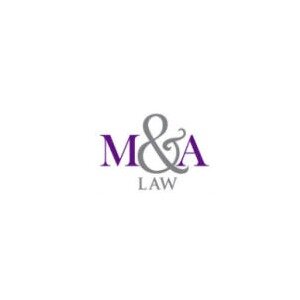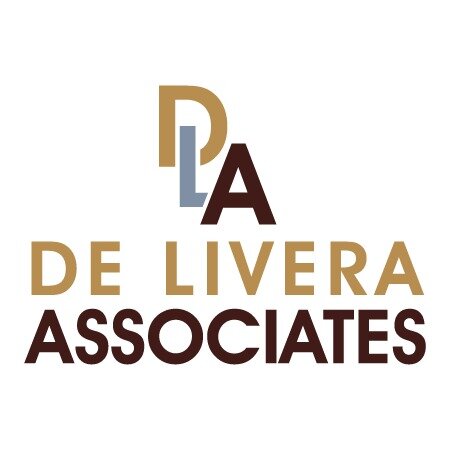Best Real Estate Contracts and Negotiations Lawyers in Colombo
Share your needs with us, get contacted by law firms.
Free. Takes 2 min.
Free Guide to Hiring a Real Estate Lawyer
List of the best lawyers in Colombo, Sri Lanka
About Real Estate Contracts and Negotiations Law in Colombo, Sri Lanka
Real estate contracts and negotiations in Colombo, Sri Lanka, involve the legal processes and agreements necessary for buying, selling, or leasing property. These contracts are governed by a combination of statutes, case law, and customary practices. The primary purpose of these negotiations is to ensure clear communication between the parties involved and to formalize each party's intentions regarding property transactions. Contracts must meet legal requirements to be enforceable, including mutual consent, legal capacity, lawful consideration, and precise terms. Given the complexity of real estate laws and the importance of these contracts, legal expertise is often required to ensure compliance and protect involved parties.
Why You May Need a Lawyer
There are several situations where legal assistance is crucial in real estate contracts and negotiations in Colombo, Sri Lanka:
- Complex Transactions: For high-value properties or commercial real estate dealings, the complexity of contracts demands expert legal insight.
- Dispute Resolution: Disagreements over contract terms, property boundaries, or ownership can arise, requiring legal intervention.
- Due Diligence: Conducting thorough evaluations regarding property legal status or existing encumbrances often requires a lawyer’s expertise.
- Contract Review: Reviewing documents to ensure all terms are fair and lawful is a critical legal service.
- Compliance: Ensuring the transaction adheres to Sri Lankan property laws and tax obligations requires a lawyer familiar with local regulations.
Local Laws Overview
Sri Lankan real estate laws are comprehensive, covering various aspects of property transactions. Key legislative frameworks include the Registration of Documents Ordinance, the Notaries Ordinance, and the Prescription Ordinance. Notable aspects include:
- Title Registration: All property transactions must be registered with the respective land registry to be legally recognized.
- Deed Requirements: Property sales require a deed, drafted by a licensed notary public, adhering to defined legal standards.
- Foreign Ownership Restrictions: Non-residents face restrictions and additional taxes when purchasing property.
- Land Use Regulations: Zoning laws and environmental regulations can affect property development and usage.
Frequently Asked Questions
What documents do I need for a real estate transaction?
You will need identification, proof of ownership, a signed agreement, and potentially a certificate of compliance or other government approvals.
How long does the property registration process take?
Registration can take several weeks, depending on the complexity and completeness of the documents submitted.
Can foreigners own property in Sri Lanka?
Yes, but there are specific restrictions, including a higher stamp duty for non-residents. It’s advisable to consult a lawyer to navigate these regulations.
What is the role of a notary in real estate transactions?
A notary is responsible for drafting and attesting legal documents, ensuring all aspects comply with local laws and regulations.
What should I do if there is a dispute over property boundaries?
Engage a lawyer to review title deeds and survey plans and work towards a resolution, possibly through mediation or legal action if necessary.
Do I need a lawyer for a simple lease agreement?
While not mandatory, it is recommended to consult a lawyer to ensure the lease terms are lawful and protect your interests.
Can property contracts be signed digitally?
While electronic signatures are becoming more accepted, traditional signed documents are generally preferred due to legal certainty.
What taxes are involved in a property transaction?
Typically, stamp duty and capital gains tax, if applicable, are involved. Tax rates can vary based on several factors, including residency and property type.
Are there consumer protection laws for real estate buyers?
Yes, there are laws to protect buyers from misrepresentation and fraud during property transactions.
How can I ensure the property is free from encumbrances?
Your lawyer can conduct a title search at the local land registry to verify any encumbrances or liens on the property.
Additional Resources
For further guidance and resources regarding real estate contracts and negotiations in Colombo, consider consulting the following:
- Registrar of Lands: Provides information on land registration procedures and record-keeping.
- Urban Development Authority: Offers insights into zoning laws and urban planning regulations.
- Department of Land Settlement: Manages lands in the settlement. Department of Land
- National Housing Development Authority: Deals with various housing schemes and developments.
- Lawyers Association: Can provide referrals to reputable local real estate lawyers.
Next Steps
If you require legal assistance in real estate contracts and negotiations in Colombo, consider the following steps:
- Research Local Lawyers: Look for real estate lawyers with good reviews and a strong track record in property law.
- Consult Multiple Professionals: Speak with multiple lawyers to compare their advice, costs, and experience.
- Prepare Documentation: Gather all necessary documents, including identification, existing contracts, and financial records, before consulting a lawyer.
- Discuss Fees: Be upfront about costs and obtain a detailed fee structure to avoid any misunderstandings.
- Agree on Terms of Engagement: Ensure clarity on the scope of services and what each part will entail in terms of deliverables.
Lawzana helps you find the best lawyers and law firms in Colombo through a curated and pre-screened list of qualified legal professionals. Our platform offers rankings and detailed profiles of attorneys and law firms, allowing you to compare based on practice areas, including Real Estate Contracts and Negotiations, experience, and client feedback.
Each profile includes a description of the firm's areas of practice, client reviews, team members and partners, year of establishment, spoken languages, office locations, contact information, social media presence, and any published articles or resources. Most firms on our platform speak English and are experienced in both local and international legal matters.
Get a quote from top-rated law firms in Colombo, Sri Lanka — quickly, securely, and without unnecessary hassle.
Disclaimer:
The information provided on this page is for general informational purposes only and does not constitute legal advice. While we strive to ensure the accuracy and relevance of the content, legal information may change over time, and interpretations of the law can vary. You should always consult with a qualified legal professional for advice specific to your situation.
We disclaim all liability for actions taken or not taken based on the content of this page. If you believe any information is incorrect or outdated, please contact us, and we will review and update it where appropriate.

















